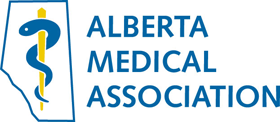Drug Poisoning Crisis
Issue
Over the past three years, Alberta’s drug poisoning deaths have exploded, affecting every area of the province. A combination of factors, including changes to the illegal drug supply and challenges in accessing services, are contributing to a situation that has claimed far too many lives and left too many families and communities grieving.
- Data shows the total number of unintentional drug poisoning deaths in Alberta between January and December 2022 was 1,498. By comparison, there were 626 deaths from January to December 2019 – the year before the pandemic. Drug poisoning remains the number one cause of fully preventable unnatural deaths.
- This is a complex situation that requires a range of harm reduction, addiction treatment and psycho-social interventions to reduce the immediate risk of death and support people to reduce or stop using substances. Involuntary treatment is unsafe and ineffective.
- Immediate access to a variety of opioid agonist treatment options across all health care settings, including correctional services, is needed. Include low-barrier services that: do not require individuals to have a phone or active health care coverage; do not require a booked appointment time; and are flexible for those who live in rural/remote areas.
- Supports for individuals to improve their social determinants of health (housing, income supports, medication coverage, photo identification and health care coverage) are critical for helping people to stay healthy and engaged in treatment. Local health and social organizations are integral to co-designing strategies and interventions.
- Increased access to mental health supports and treatment for associated mental health conditions is urgently needed.
- Contaminants in the illegal drug market vary considerably by region; a nimble and coordinated response to emerging areas of need is required in a local context, with input and collaboration from local leaders and people with lived experience.
- We need real-time province-wide local geographic area data on drug poisoning deaths and opioid-related EMS calls to guide baseline resource allocation and support immediate strategies to respond to new spikes.
- The Office of the Chief Medical Examiner requires adequate funding to eliminate the current lag in reporting of drug toxicity deaths, which can be more than a year from the time of death.
- Addiction is a health issue, not a moral failing. Stigma remains one of the main barriers to people reaching out for help and services. A coordinated campaign to reduce stigma and integrate services into existing locations where people are likely to seek care (e.g., hospitals, workplaces, etc.) may help prevent future deaths.
- We must ensure that each acute care hospital in Alberta has funding and resources for staff education, addiction medicine consult teams and harm reduction interventions.
- Funding is needed for addiction training across multiple health disciplines. Family physicians need to be better resourced and remunerated for integrating addiction medicine services into their practices.
- Decriminalization to keep people with substance use disorders out of the criminal justice system should be explored.
- Government has taken some actions that will play into eventual solutions. These include:
- Pre-treatment program received a $1.8-million grant from the province.
- Budget 2023 will direct $155 million into recovery communities over the next three years with a focus on long-term bed-based addiction treatment, some of which is tailored to individuals experiencing homelessness. The outcomes from these initiatives will need to be tracked and publicly reported.
- Expansion of access to opioid agonist treatment via the virtual Opioid Dependency Program.
Key questions for candidates and parties should they win the provincial election
- How does your party plan to deliver a comprehensive continuum of services for people who use substances?
- What steps does your party plan to immediately reduce the number of drug poisoning deaths?

